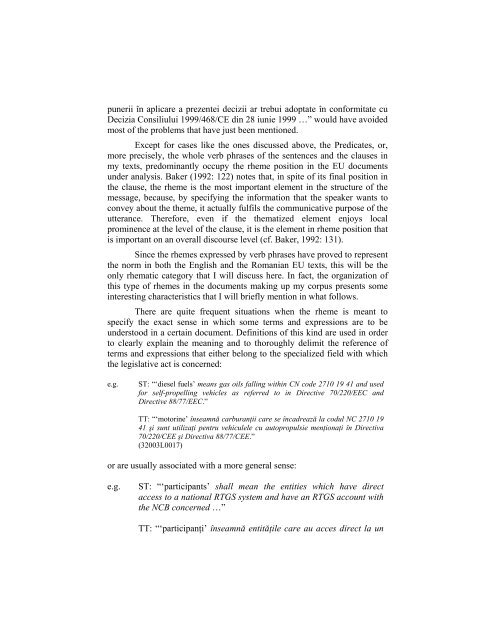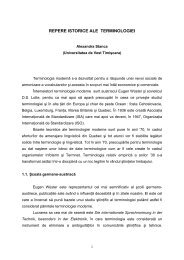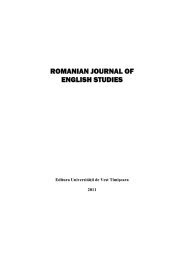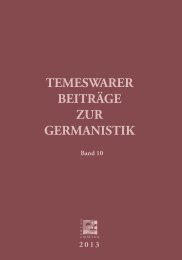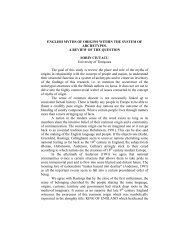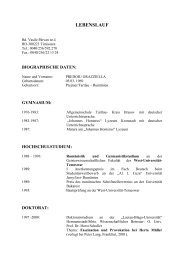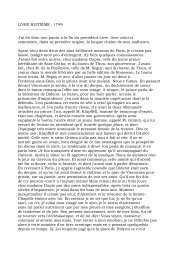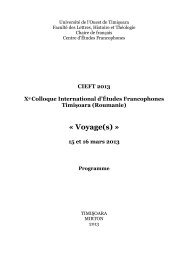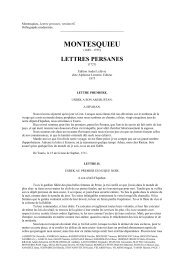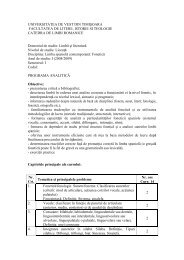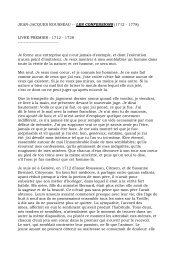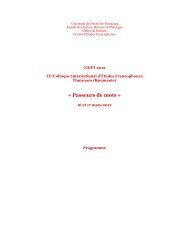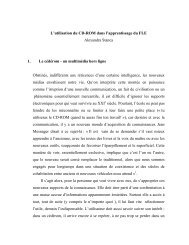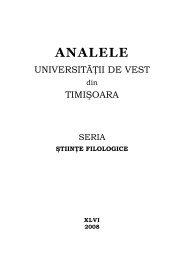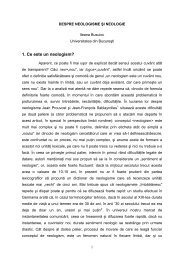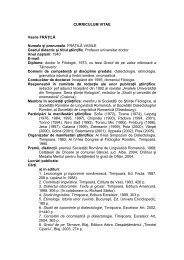TRANSLATION AND MEANING: A CULTURAL- COGNITIVE ...
TRANSLATION AND MEANING: A CULTURAL- COGNITIVE ...
TRANSLATION AND MEANING: A CULTURAL- COGNITIVE ...
You also want an ePaper? Increase the reach of your titles
YUMPU automatically turns print PDFs into web optimized ePapers that Google loves.
punerii în aplicare a prezentei decizii ar trebui adoptate în conformitate cu<br />
Decizia Consiliului 1999/468/CE din 28 iunie 1999 …” would have avoided<br />
most of the problems that have just been mentioned.<br />
Except for cases like the ones discussed above, the Predicates, or,<br />
more precisely, the whole verb phrases of the sentences and the clauses in<br />
my texts, predominantly occupy the rheme position in the EU documents<br />
under analysis. Baker (1992: 122) notes that, in spite of its final position in<br />
the clause, the rheme is the most important element in the structure of the<br />
message, because, by specifying the information that the speaker wants to<br />
convey about the theme, it actually fulfils the communicative purpose of the<br />
utterance. Therefore, even if the thematized element enjoys local<br />
prominence at the level of the clause, it is the element in rheme position that<br />
is important on an overall discourse level (cf. Baker, 1992: 131).<br />
Since the rhemes expressed by verb phrases have proved to represent<br />
the norm in both the English and the Romanian EU texts, this will be the<br />
only rhematic category that I will discuss here. In fact, the organization of<br />
this type of rhemes in the documents making up my corpus presents some<br />
interesting characteristics that I will briefly mention in what follows.<br />
There are quite frequent situations when the rheme is meant to<br />
specify the exact sense in which some terms and expressions are to be<br />
understood in a certain document. Definitions of this kind are used in order<br />
to clearly explain the meaning and to thoroughly delimit the reference of<br />
terms and expressions that either belong to the specialized field with which<br />
the legislative act is concerned:<br />
e.g. ST: “‘diesel fuels’ means gas oils falling within CN code 2710 19 41 and used<br />
for self-propelling vehicles as referred to in Directive 70/220/EEC and<br />
Directive 88/77/EEC.”<br />
TT: “‘motorine’ înseamnă carburanţii care se încadrează la codul NC 2710 19<br />
41 şi sunt utilizaţi pentru vehiculele cu autopropulsie menţionaţi în Directiva<br />
70/220/CEE şi Directiva 88/77/CEE.”<br />
(32003L0017)<br />
or are usually associated with a more general sense:<br />
e.g. ST: “‘participants’ shall mean the entities which have direct<br />
access to a national RTGS system and have an RTGS account with<br />
the NCB concerned …”<br />
TT: “‘participanţi’ înseamnă entităţile care au acces direct la un


